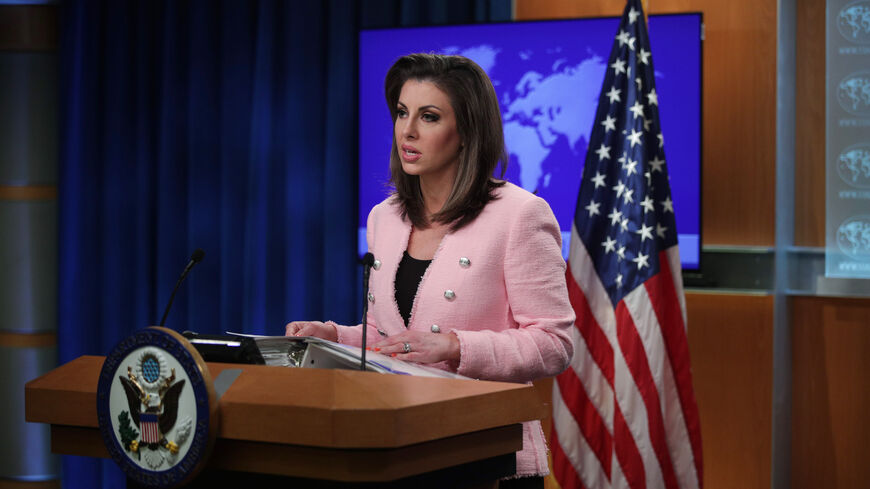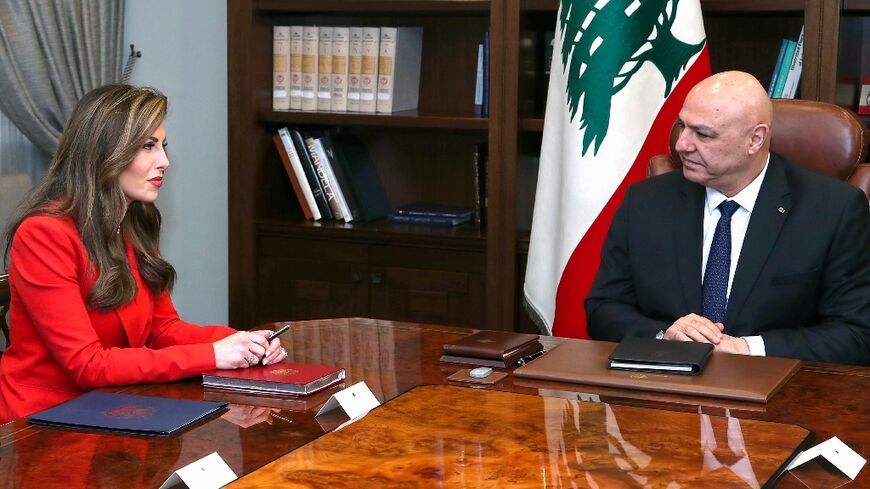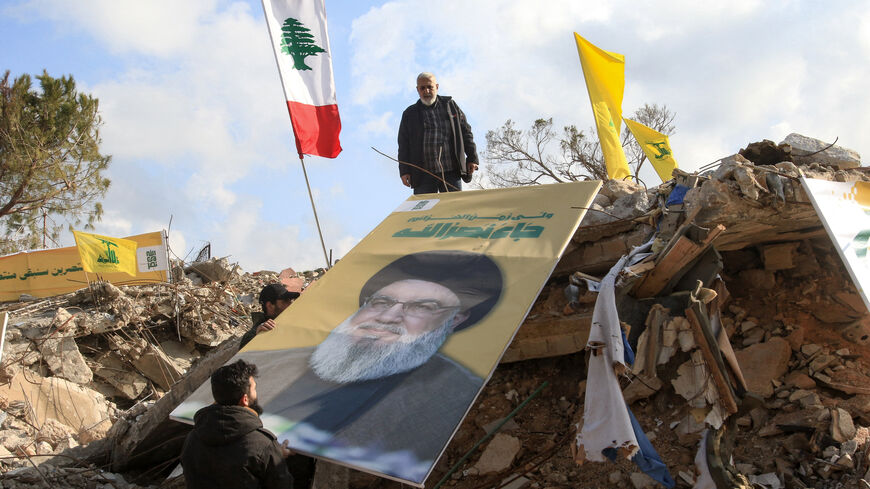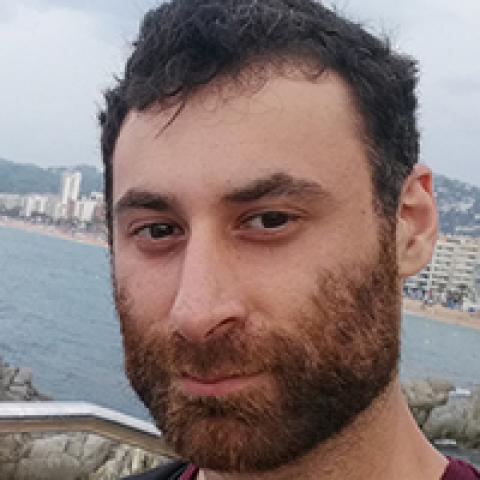US envoy visits Lebanon, says US 'grateful' to Israel for defeating Hezbollah
Morgan Ortagus reaffirmed the Trump administration position that Hezbollah cannot be part of the next Lebanese government, even as Beirut warned that this could create a parliamentarian crisis.
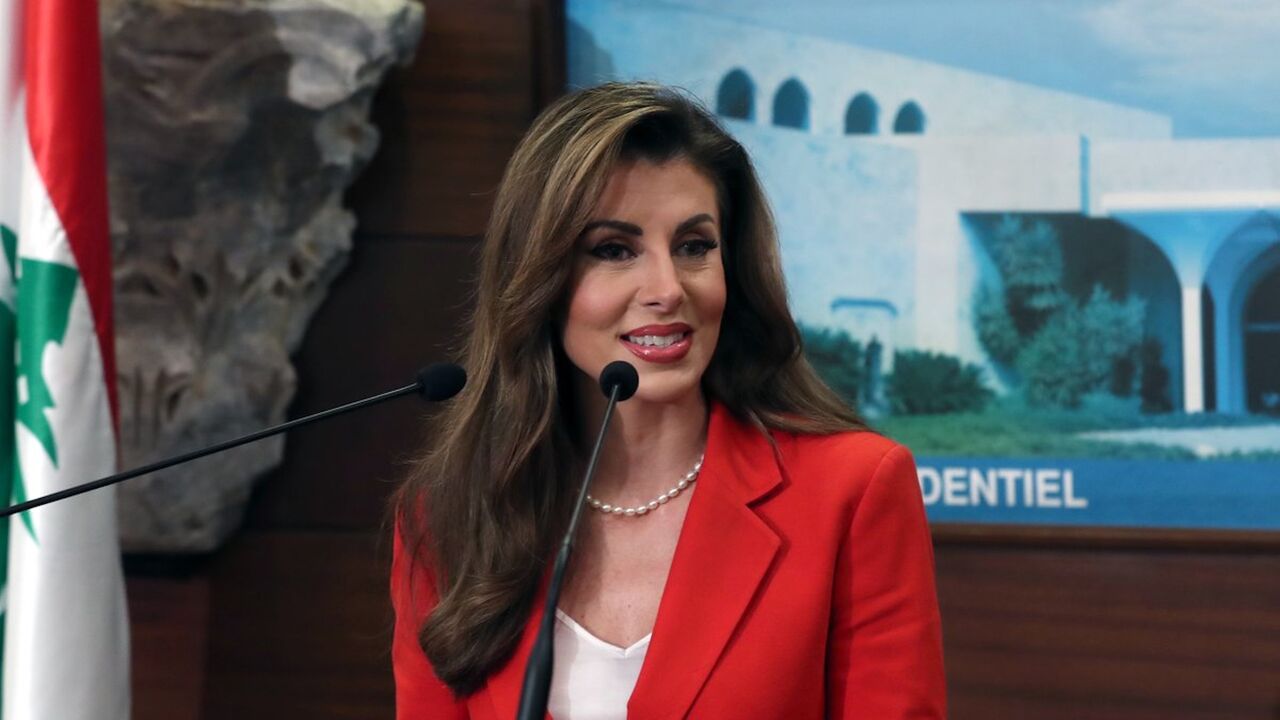
BEIRUT — US deputy special envoy for the Middle East Morgan Ortagus on Friday hailed what she called the military defeat of Hezbollah by Israel and called on Lebanon to ensure that the Iran-backed group remains defeated and excluded from the government.
“We are grateful to our ally Israel for defeating Hezbollah,” Ortagus said during a press conference in Beirut. “It is thanks to President [Joseph] Aoun and the prime minister-designate, Nawaf Salam, and everyone in this government who is committed to an end of corruption, who is committed to reforms, and who are committed to making sure that Hezbollah is not a part of this government in any form, and that Hezbollah remains disarmed and militarily defeated.”
Ortagus spoke to reporters in Beirut on Friday after meeting with President Joseph Aoun at the presidential palace in Baabda.
“We have set clear red lines from the US that they [Hezbollah] won’t be able to terrorize the Lebanese people, and that includes by being part of the government,” she stressed at the press conference. “The end of Hezbollah’s reign of terror in Lebanon and around the world has started, and it’s over.”
On Iran’s support of Hezbollah, Ortagus said President Donald Trump is putting pressure on Tehran to prevent it from funding its “terror proxies” in the region and “inflict chaos and harm” in Lebanon and elsewhere in the region.
First such visit
Ortagus arrived in Beirut on Thursday night — her first foreign trip outside the United States — at the head of a high-level delegation as efforts to form a cabinet in Lebanon stalled over the number of Shiite ministers to be appointed.
The Shiite duo of Hezbollah and its main ally, Amal, have insisted that in the next cabinet they retain the "blocking third" — at least one-third of the seats — which would give them a veto over cabinet decisions and the power to topple the government. Hezbollah had held such power in successive governments from 2008 to 2019.
Salam has been engaged in intense negotiations with the various political parties to resolve disputes over key ministerial portfolios, including the Finance Ministry.
On Thursday, ahead of a meeting between Aoun, Salam and parliament speaker Nabih Berri, the possible announcement of a new cabinet had been expected, but a last-minute dispute arose over the naming of a fifth Shiite minister. Berri, who also heads Amal, has objected to Salam appointing the fifth Shiite without first consulting with him.
Hezbollah and Amal have already named four ministers — a total of 24 positions is anticipated — and, according to local reports, Berri had reportedly agreed that Aoun and Salam would select the fifth Shiite minister in return for naming Amal-affiliated Yassine Jaber as minister of finance, a key position that Amal or Hezbollah has held since 2014.
Under Lebanon’s sectarian power-sharing system, ministerial portfolios are divided proportionally among the various religious sects, with key parties bargaining for control over strategic ministries. The composition of a government has traditionally been negotiated by the Maronite president, the Sunni prime minister and the Shiite parliament speaker to ensure that all the sects are represented to avoid political deadlock.
Salam has insisted that his cabinet include figures unaligned with the traditional political parties, a key demand of international donors and Western actors to ensure the enactment of reforms and an end to the endemic corruption that has crippled the country for decades.
Speaking at the press conference, Ortagus asserted the commitment of the United States to “friendship and partnership" with the new government. She continued, “We are incredibly hopeful. That hope comes because we know we have men and women of character [who] will ensure that we start to end corruption, that we end influence from Hezbollah and that we embark on the reforms for a greater country.”
Aoun’s election on Jan. 9, thanks to an international push led primarily by the United States and Saudi Arabia, came weeks after a US-brokered ceasefire in late November ended the war between Israel and Hezbollah after more than a year of missile strikes and a ground invasion of Lebanon by Israeli forces.
The election of Aoun and the subsequent nomination of Salam, former head of the International Court of Justice, was seen by many political observers as a win for Western actors amid Hezbollah’s waning influence.
During a meeting with Aoun at Baabda on Friday, Ortagus conveyed Trump’s congratulations to him on his election last month and expressed the United States’ “unwavering support” for Lebanon and its people, according to the official National News Agency. In turn, Aoun thanked the United States for its support for Lebanon, a presidency statement said.
On the conflict with Israel, Aoun told Ortagus that “Israeli aggressions” in Lebanon must end, emphasizing that “stability in the south is linked to the withdrawal of Israeli troops.”
“The Lebanese army is ready to deploy in the villages and towns from which Israeli forces withdraw, provided that the withdrawal is completed within the deadline of Feb. 18,” Aoun was quoted as saying, referring to the revised deadline for the troops' departure from southern Lebanon. Under the November ceasefire agreement, the Israeli withdrawal was scheduled for completion by Jan. 26, but was extended to Feb. 18.
Ortagus later told reporters that the United States is committed to the new deadline.
“Feb. 18 will be the date for redeployment whenever the Israeli, IDF troops, will finish their redeployment. And of course, the [Lebanese] troops will come in behind them. So we are very committed to that firm date,” she said.

